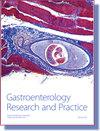Risk Factors for Worsening of Bone Loss in Patients Newly Diagnosed with Inflammatory Bowel Disease
IF 2
4区 医学
Q3 GASTROENTEROLOGY & HEPATOLOGY
引用次数: 2
Abstract
Background Bone loss is common in patients with inflammatory bowel disease (IBD). The aim of the present study was to determine the prevalence of metabolic bone disease in patients newly diagnosed with IBD and to identify the risk factors for bone loss over time. Methods We performed a retrospective, both cross-sectional and longitudinal, study to extract the risk factors of bone loss (including osteopenia and osteoporosis) in patients newly diagnosed with IBD, using dual-energy X-ray absorptiometry (DXA). Results A total of 639 patients newly diagnosed with IBD that had at least one DXA were included in the cross-sectional study. Osteopenia and osteoporosis were diagnosed in 24.6% and 5.4% of patients, respectively. Age at diagnosis, body mass index, and serum phosphorus were identified as independent factors associated with bone loss at baseline. A total of 380 of the 639 IBD patients (including 212 CD patients and 168 UC patients) with at least a second DXA scan were included in the longitudinal study. 42.6% of the patients presented a worsening of bone loss in the follow-up study. Menopause, albumin, and use of corticosteroids were identified as independent factors associated with worsening of bone loss. Conclusions Metabolic bone disease is common in IBD patients, and there is a significant increase in prevalence of bone loss over time. Postmenopausal female, malnourished patients, and those requiring corticosteroid treatment are at risk for persistent bone loss. Therefore, BMD measurements and early intervention with supplementation of calcium and vitamin D are recommended in IBD patients with high-risk factors.新诊断为炎症性肠病患者骨丢失恶化的危险因素
背景骨丢失在炎症性肠病(IBD)患者中很常见。本研究的目的是确定新诊断为IBD患者代谢性骨病的患病率,并确定随着时间的推移骨丢失的风险因素。方法我们采用双能X射线吸收仪(DXA)对新诊断为IBD的患者进行了横断面和纵向的回顾性研究,以提取骨丢失(包括骨质减少和骨质疏松)的风险因素。结果共有639名新诊断为IBD且至少有一种DXA的患者被纳入横断面研究。骨质疏松症和骨质疏松症的诊断率分别为24.6%和5.4%。诊断时的年龄、体重指数和血清磷被确定为与基线时的骨丢失相关的独立因素。639名IBD患者中,共有380人(包括212名CD患者和168名UC患者)至少进行了第二次DXA扫描,被纳入纵向研究。42.6%的患者在随访研究中出现骨丢失恶化。更年期、白蛋白和皮质类固醇的使用被确定为与骨丢失恶化相关的独立因素。结论代谢性骨病在IBD患者中很常见,并且随着时间的推移,骨丢失的患病率显著增加。绝经后女性、营养不良患者和需要皮质类固醇治疗的患者有持续骨丢失的风险。因此,建议对有高危因素的IBD患者进行骨密度测量和早期干预,补充钙和维生素D。
本文章由计算机程序翻译,如有差异,请以英文原文为准。
求助全文
约1分钟内获得全文
求助全文
来源期刊

Gastroenterology Research and Practice
GASTROENTEROLOGY & HEPATOLOGY-
CiteScore
4.40
自引率
0.00%
发文量
91
审稿时长
1 months
期刊介绍:
Gastroenterology Research and Practice is a peer-reviewed, Open Access journal which publishes original research articles, review articles and clinical studies based on all areas of gastroenterology, hepatology, pancreas and biliary, and related cancers. The journal welcomes submissions on the physiology, pathophysiology, etiology, diagnosis and therapy of gastrointestinal diseases. The aim of the journal is to provide cutting edge research related to the field of gastroenterology, as well as digestive diseases and disorders.
Topics of interest include:
Management of pancreatic diseases
Third space endoscopy
Endoscopic resection
Therapeutic endoscopy
Therapeutic endosonography.
 求助内容:
求助内容: 应助结果提醒方式:
应助结果提醒方式:


